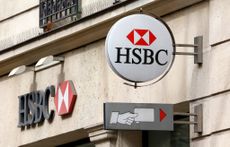NS&I increases interest rates in a boost for savers and Premium Bond holders
It’s good news for savers and premium bond holders as NS&I increases rates on five accounts


National Savings and Investments (NS&I) is increasing the rates on some of its saving products, including Premium Bonds with the prize fund rate now at its highest level in over 14 years.
Interest rate rises take effect from today (24 January), on the following National Savings and Investments products:
- Direct Saver and Income Bonds will increase from 2.30% to 2.60%
- Direct ISA will increase from 1.75% to 2.15% (tax-free)
- The Premium Bonds prize fund rate will increase from 3.00% to 3.15% (Effective from February)
- Junior ISA rate will increase from 2.70% to 3.40% (tax-free) for those under 18
When you save or invest with NS&I, you’re actually lending your money to the government. When NS&I sets its interest rates, it is obliged to balance the interests of savers (by offering decent rates) and taxpayers (by raising money for the government).
It also means any amount you save is protected by the government, and the £85,000 FSCS protection limit doesn’t apply.
Some products are unique to NS&I – such as index-linked savings certificates and Premium Bonds. But others are similar to savings accounts available elsewhere, so it’s worthwhile comparing these accounts against the best savings accounts, and best cash ISAs.
Premium Bonds rate hike
This follows the rise on 1 January, when the fund rate increased from 2.20% to 3% for the January draw.
These changes mean although the odds of winning a £1 bond prize will remain at 24,000 to 1, the number of prizes worth £50 to £100,000 will increase in February’s draw.
Look After My Bills Newsletter
Get the best money-saving tips, tricks and deals sent straight to your inbox every week. Make sense of your money in partnership with The Money Edit.
NS&I Chief Executive, Ian Ackerley said: “Today’s changes will provide a welcome boost for savers of all ages across the country, with more Premium Bonds prizes and some of the highest interest rates we’ve seen in over a decade.”
Number of premium bond prizes available to win in February
From February, the number of prizes worth £50 to £100,000 will increase. Here’s how many will be available for each value.
| Value of prizes in February 2023 | Number of prizes in February 2023 |
|---|---|
| £25 | 2,376,161 |
| £50 | 1,280,509 |
| £100 | 1.280,509 |
| £500 | 37,719 |
| £1,000 | 12,573 |
| £5,000 | 1,177 |
| £10,000 | 590 |
| £25,000 | 236 |
| £50,000 | 117 |
| £100,000 | 59 |
| £1,000,000 | 2 |
How to check if you've won premium bonds
Since rates have risen on January’s pot too, it’s worth going back and checking how much extra you have bagged. Here are your options if you want to check if you’ve won a premium bond.
Use NS&I’s online prize checker or the prize checker app which lets you check if you’ve won anything in the January draw, and you are also able to backdate and check if you’ve won anything previous to that.
If you own an Amazon Alexa, you can ask her for your NS&I number.
Those registered with NS&I online should refer back to your emails as you should have had an email notifying you of any wins.
If you’re NOT registered online, you should receive a letter through the post from NS&I.
Be wary though, you could easily miss an email or a letter through the post as NS&I found nearly 80 million pounds worth of unclaimed prizes were still up for grabs last year.
Don’t worry if you’ve forgotten NS&I account number, you can call NS&I on 08085 007 007. You can also use NS&I’s tracing service or the My Lost Account website so you can track down your premium bonds.

Vaishali graduated in journalism from Leeds University. She has gained experience writing local stories around Leeds and Leicester, which includes writing for a university publication and Leicester Mercury.
She has also done some marketing and copywriting for businesses.
When she is not writing about personal finance, Vaishali likes to travel and she's a foodie.
-
 Three energy firms pay £8m in switching compensation - has your provider paid out?
Three energy firms pay £8m in switching compensation - has your provider paid out?More than 100,000 customers have received compensation after changing providers, but is now a good time to switch energy suppliers?
By Tom Higgins Published
-
 Save £300 on your supermarket shop with cashback accounts
Save £300 on your supermarket shop with cashback accountsBanks, credit card companies and cashback sites are all offering cashback on your supermarket shop, but can you use them all to max out your savings?
By Vaishali Varu Published
-
 Save £300 on your supermarket shop with cashback accounts
Save £300 on your supermarket shop with cashback accountsBanks, credit card companies and cashback sites are all offering cashback on your supermarket shop, but can you use them all to max out your savings?
By Vaishali Varu Published
-
 More than 150,000 grandparents missing out on £1,500 state pension uplift: how to claim
More than 150,000 grandparents missing out on £1,500 state pension uplift: how to claimGrandparents who provide childcare by looking after their grandchildren could be missing out on valuable state pension money worth thousands. We look at how much extra you could get and if you’re eligible
By Stephanie Baxter Published
-
 Can you reclaim bank charges?
Can you reclaim bank charges?If you’ve incurred bank charges over the years, these can add up to hundreds of pounds – but can you get your money back? We look at whether you can make a claim and how to do it
By Stephanie Baxter Published
-
 HSBC extends deadline for customers to secure bigger interest-free overdraft
HSBC extends deadline for customers to secure bigger interest-free overdraftHSBC customers now have until 10 May to increase their interest-free overdraft limit from £25 to £500. First Direct, Lloyds and Nationwide also offer similar support. We explain everything you need to know
By Katie Binns Last updated
-
 New banking hub locations revealed - is there one near you?
New banking hub locations revealed - is there one near you?The rise of banking hubs is in response to a stream of local branch closes. With more planned to launch soon, we look at what services they offer and where you can find one
By Stephanie Baxter Published
-
 April 2023 premium bond winners revealed - are you a millionaire?
April 2023 premium bond winners revealed - are you a millionaire?Two premium bond holders have won £1 million each this month and there are many other prizes for another 5,018,742 winners in April. We look at how to find out if you’ve won
By Stephanie Baxter Published
-
 State pension underpayment warning - have you been underpaid and eligible for more than £11,500?
State pension underpayment warning - have you been underpaid and eligible for more than £11,500?Thousands of retirees, mainly women, are still owed money by the government after being underpaid their state pension. We explain what you need to know
By Katie Binns Last updated
-
 State pension age rise to 68 delayed - what it means for your retirement
State pension age rise to 68 delayed - what it means for your retirementThe state pension age will stay at current levels for longer than expected after the government today confirmed that it has shelved plans to increase it to 68 by the late 2030s. We explain what it all means for you
By Stephanie Baxter Last updated